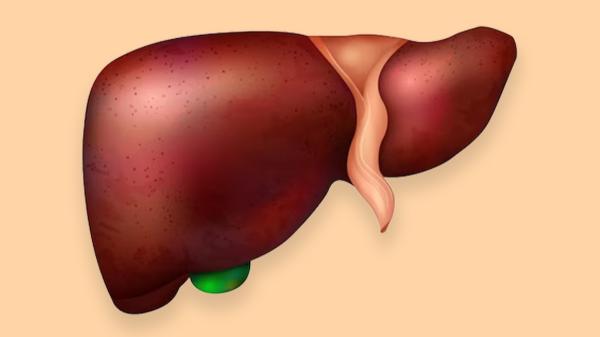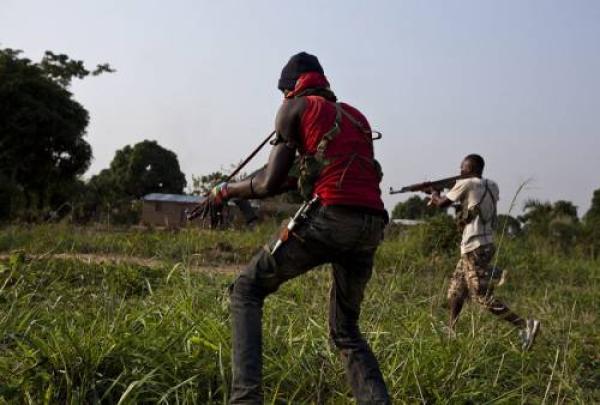
PANIC spread from Ondo State through Ekiti State to Oyo State, on Friday, as a victim of the strange ailment that has killed up to 30 persons in Ode-Irele, Ondo State, was spotted in a hospital in Ekiti State, accompanied by his wife.
The victim, a 38-year-old man who hailed from Kogi State, was soon moved to Ibadan, the Oyo State capital, on Friday, where he was admitted to the infectious diseases unit of the University College Hospital.
The Chief Medical Director (CMD) of the Federal Teaching Hospital, Ido-Ekiti, Dr Lawrence Majekodunmi, confirmed that the patient “male, 38 years, from Kogi State” was brought from Ondo State to the hospital late on Thursday.
Majekodunmi explained that “we noticed that the patient was having acute viral haemorrhagic disease and we quarantined him and offered immediate palliative care with consciousness for the safety of our staff.
“We believe that the patient was brought to FETHI because of our record of quality care but we needed to use protective gear, as we quarantined him to give further care.
“While giving initial managerial care, we contacted our colleagues and other hospitals around the country and the University College Hospital (UCH) in Ibadan, Oyo State, agreed to take over the patient. So, right now, he is in Ibadan.”
The patient arrived at UCH, Ibadan, at about 3.00 p.m., accompanied by his wife, and was taken to the hospital’s ward, built to cater for highly infectious diseases such as Ebola and Lassa fever.
The Chief Medical Director of the hospital, Professor Temitope Alonge, confirmed the admission of the patient to Saturday Tribune.
He stated the hospital was prepared to handle the patient’s case which, he said, was suspected to be Lassa fever.
He said, however, that blood samples had been taken to confirm whether the vailment was lassa fever or any other hemorrhagic fever.
The result of the test, he said, would be ready in eight hours (from 3.pm).
Professor Alonge, who allayed the fear of patients and staff members of the hospital of contracting the disease, said the patient was to be in a ward, strategically located away from other wards and clinics.
He said the hospital would give free treatment to the patient, adding that “we have about 120 ampoules of the medicine to treat Lassa fever and so it is a treatable condition.”
Alonge stated: “Already, the patient is said to be in the haemorrhagic phase, in which case we will have results within eight hours and you can confirm which of the four haemorrhagic fevers we are dealing with and we can institute treatment immediately.”
Earlier, there was panic in the hospital, which resulted in the hospital issuing a circular, signed by the Chairman, Medical Advisory Committee, Dr A. O. Afolabi, alerting staff and patients of an outbreak of a disease in Ode-Irele, Ondo State.
The circular mentioned signs of the disease and urged staff members of the clinical units not to panic but to be alert and take precautionary measures in view of the patient on admission.
Governor Olusegun Mimiko, in a broadcast to the people of the state, on Friday evening, said government was taking all necessary and available actions to respond to the health crisis.
He said cerebro-spinal fluid, blood and urine specimens had been taken for examination, adding that the specimens had been cultured and examined and the preliminary results showed that no known viral infection had been detected.
“We have further ordered toxicology test. We have commenced active surveillance through the Local Government Area Disease Surveillance and Notification officer. We await final laboratory results to be able to fully apprehend and finally surmount this challenge,” he said.
Condoling with the families of victims of the strange disease, Mimiko said he was saddened by the losses and the attendant fear of what, he said, looked like an epidemic.
“We have witnessed in the last few days a major health challenge. A yet to be named ailment whose causative agents, diagnosis and cure are also yet to be determined struck in locations in Irele Local Government Area of our state, killing 17 people and stoking panic and fear.
“I am, like you, saddened by this losses and the attendant fear of what looks like an epidemic.
“In all, 17 deaths have been confirmed in Ayadi community and Ode Irele township and all the deaths were preceded by symptoms of sudden blurred vision, headache and loss of consciousness,” he added.
Mimiko stressed further that a medical team was dispatched to the communities affected and the General Hospital as well as other health facilities, to gather needed information about the nature, scope and circumstances of the outbreak.
Key informants interview, hospital record search and patient interview he explained , were used to obtain information, stating that “the symptoms in this situation are not peculiar to any known epidemic and so have remained largely confounding.”
He said the symptoms observed in the two communities of Ayadi and Ode Irele bore no resemblance to those associated with the Ebola Virus Disease (EVD).
“Our investigations thus far have been in conjunction with our development partners, the World Health Organisation (WHO) and report sent to Nigeria Centre for Disease Control (NCDC).
Urging the people to report any suspected case to the nearest health facility or call the telephone numbers announced on the state’s radio and television stations, Mimiko stated his hope that with the combined efforts of all, final and definite solution will just be a matter of days.
The time, he said, required vigilance, love and unity of purpose, care and circumspection and “above all, these times demand strict adherence to hygienic ways of life.”
Such little things as regular washing of hands, covering of mouths while sneezing, he said, can go a long way to ensure healthy living, adding that he had directed that the information management team set up for the purpose of gathering facts and responding to questions be available all day and brief the public twice everyday until the disease is fully contained.
During a visit to Ode-Irele, on Thursday, some natives told Saturday Tribune that the disease and the concomitant deaths had spiritual dimensions.
A resident in the town said since the disease was spiritual in nature, the treatment would require a spiritual approach.
“Community leaders said some people broke into a shrine and the god became angry with them, striking all those who had a hand in the act,” the resident said.
Some traditional worshippers who gathered at the centre of the town, at the entrance of a shrine called Malokun, performing rituals to appease the “angry” god.
The worshippers, comprising only women and girls, performed spiritual cleansing by pouring water on “special” leaves known as Akoko at the entrance, a gesture said to be indicative of their appeal to the god to stop the strange disease and untimely deaths in the land.
The leader of the worshippers, High Priest Lemo, affirmed that the Malokun god became angry with the town after some people committed abomination by breaking into the shrine and carting away some artefacts.
“Some four days ago, some young men broke into the shrine of Malokun and made away with some artefacts. This had never happened before in history of this town. When we realised this, we met with the traditional ruler and some high chiefs where we resolved to pacify the spirit of the god.
“We woke up on Wednesday only to witness scores of deaths across the town. As of this morning, we have counted up to 30 corpses of our sons and daughters who are between the ages of 25 and 30. But with this appeasement being carried out, I am sure there will be no more casualty,” he said.
Another traditionalist and a priest of the shrine, Chief Akinsipe, corroborated Lemo’s statement.
He expressed confidence that the appeasement would end the unusual deaths.
Efforts to speak with the traditional ruler of the town failed as the monarch was said to be devastated by the number of casualties recorded in the town.
The resident, who spoke with Saturday Tribune earlier, said an Igbo trader who purchased the stolen artefacts was set to return the ancient materials to the shrine following the effect on the community.
But he was quick to add that the corpses of the victims would be exhumed and buried in the forest.
The chairman of Irele Local Government Area, under which the affected town is, Mr Dare Olatunji, described the situation as devastating but commended the state government for rising up to the challenge.
Olatunji said with the medical team set up by the government and the samples taken, there was the possibility that the disease would soon be a thing of the past.
He said the efforts of the medical team would complement the appeasement by the traditionalists.
“I hope all this will stop because we have never experienced something like this in Irele and I hope our youths will realise that we need to keep and protect our custom and tradition,” the chairman said.
The Chief Medical Director of Ode-Irele General Hospital, Dr Segun Ayodele, said the spread of the disease had been curtailed through a prompt response to the situation.
He dismissed the position of the traditionalists on the incident, saying medical personnel had been able to stabilise the four patients admitted at the special ward of the hospital.
The disease had initially defied treatment, medically or spiritually, with the death toll rising to as much as 14 within seven hours on Wednesday, a situation which caused the people of the town and communities around it to begin movements into other towns including Ore, Ondo, Ajapa and Akure.
As soon as the information reached the Ministry of Health, the state government acted by deploying medical personnel in the area.
Speaking on the development at a press conference in Akure, the state capital, the Commissioner for Health, Dr Dayo Adeyanju, confirmed that the disease had claimed 14 lives as of Wednesday while other victims were on danger list.
Adeyanju said the disease presented with serious headache followed by blurred vision or complete loss of sight and usually affected the central nervous system.
According to him, the cause of the disease was unknown but samples had been taken to Lagos.
He said measures were being taken by his ministry to stop the disease from spreading.
The commissioner disclosed that the disease had no similarity with the Ebola Virus Disease but said there was no proof yet whether the disease was contagious or not.





















